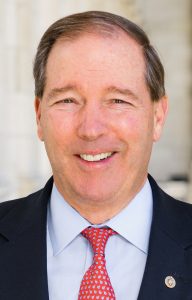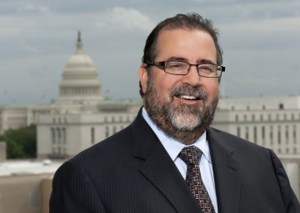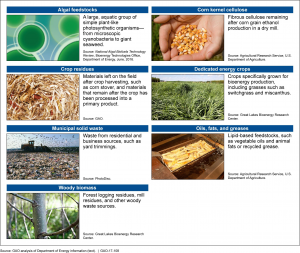
Legislators say “Well intentioned flop” needs environmental update
Recently proposed federal legislation would take initial steps to reform the Renewable Fuel Standard (RFS), known as the corn ethanol mandate, by incorporating environmental protections as a key component.

New Mexico Senator Tom Udall, courtesy of U.S. Senate Photographic Studio
The Greener Fuels Act was introduced in the Senate by New Mexico Sen. Tom Udall and a companion bill was introduced in the U.S, House of Representatives by Vermont Rep. Peter Welch. Both are Democrats.
The RFS is the decade-old law that mandates certain levels of ethanol in gasoline. It was designed to reduce dependence on foreign oil and to reduce greenhouse gas emissions that contribute to climate change.
But the two legislators say the law hasn’t met expectations.
“Despite its early promise, the RFS has been a well-intentioned flop that is harming the environment by contributing to the conversion of millions of acres of grasslands, wetlands and forests into crop production …” Welch said in a press release.
“Our common sense legislation reforms the mandate to dramatically reduce its environmental impact and to support the continued growth of advanced biofuels,” Welch said.
Udall said the bill “is a forward-looking proposal, offering visionary reforms to put us on a cleaner and more sustainable path.”
Specifically, the bill would begin to phase out of the corn ethanol mandate and immediately reduce ethanol in fuel by up to one billion gallons, according to the legislators.
It would provide support for farmers who return corn fields back to natural habitat and place an emphasis on next generation cellulosic biofuels which reduce greenhouse gas emissions by a substantial margin over corn ethanol. Cellulosic biofuels are produced from plant-based materials and are considered to be the future of biofuels.
Welch said it is “essential to have environmental considerations at the table,” in any effort to update the RFS.
The National Wildlife Federation has been pushing hard for reform of the RFS out of concern for the unintended consequences of the law related to habitat loss.
In the Great Lakes region, Federation CEO Collin O’Mara has linked the ethanol mandate to habitat loss that contributes to Lake Erie’s algae blooms.
O’Mara said the proposed Greener Fuels Act “offers common-sense solutions that protect wildlife, drinking water and public health, while supporting family farms and putting the nation on track to meet its clean fuel goals the right way.”
The Ohio Ethanol Producers Association promotes the economic impact of corn-ethanol production on its website and says “the truth is Ohio’s corn-based ethanol is a vital and necessary answer to our energy demands.” The group says ethanol producers have bought over 200 million bushels of Ohio corn yearly.
Erasing progress
The ethanol industry’s national trade association reacted sharply to the legislation.

Bob Dinneen, President and CEO of the Renewable Fuels Association, courtesy of ethanolrfa.org
“The lawmakers claim their legislation ‘would build on and improve the current RFS’, but the truth is that it would throw the program into reverse, erasing more than a decade of progress that has helped to expand consumer access to cleaner, higher octane fuels like ethanol,” Renewable Fuel Association CEO Bob Dinneen said.
Citing U.S. EPA data, he said “that agricultural land use is actually shrinking and forest and grassland are expanding, undermining the land use change theory.”
Dinneen said “backtracking from this progress will only do harm.”
Competing legislation
The Greener Fuels Act is not the only RFS reform law in the works.
Texas Sen. John Cornyn is working on a compromise bill trying to please both the oil industry and ethanol producers. The two are at odds with oil companies wanting lower volumes of corn ethanol in fuel while ethanol producers lobby for higher limits.
Welch and Udall acknowledged the Cornyn RFS initiative and Udall said “the hard work is to find common ground with other proposals.”
Great Lakes Now asked the legislators how the bill would advance politically.
Welch acknowledged the current political climate where it’s difficult to get anything done in Congress. The bills offered by Welch and Udall lack co-sponsors and Republican support.
He said they might take “an opportunistic approach to take advantage of any legislative opportunities” where they could attach it to a bill that would likely pass. While not ruling out trying to include it in the massive Farm Bill which is up for renewal in 2018, both said it was unlikely given complexity of the legislation.
Rep. Welch said the consensus is that the Renewable Fuel Standard is broken. “The challenge is coming up with a fix we all can agree on.”






